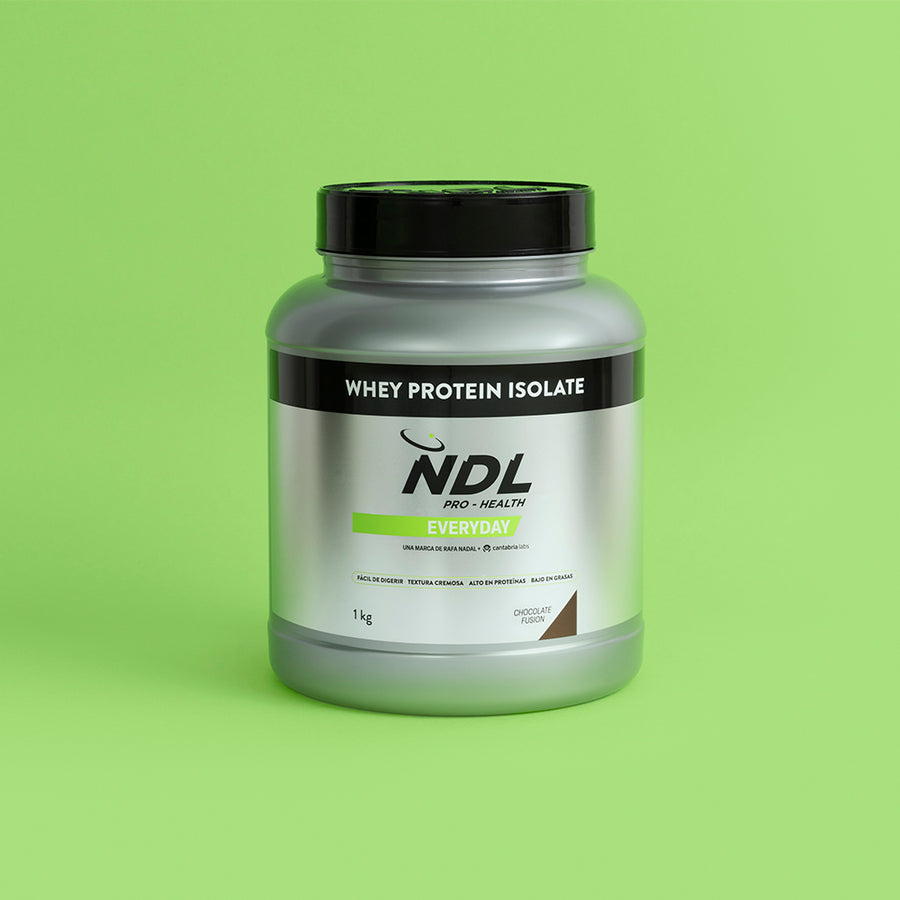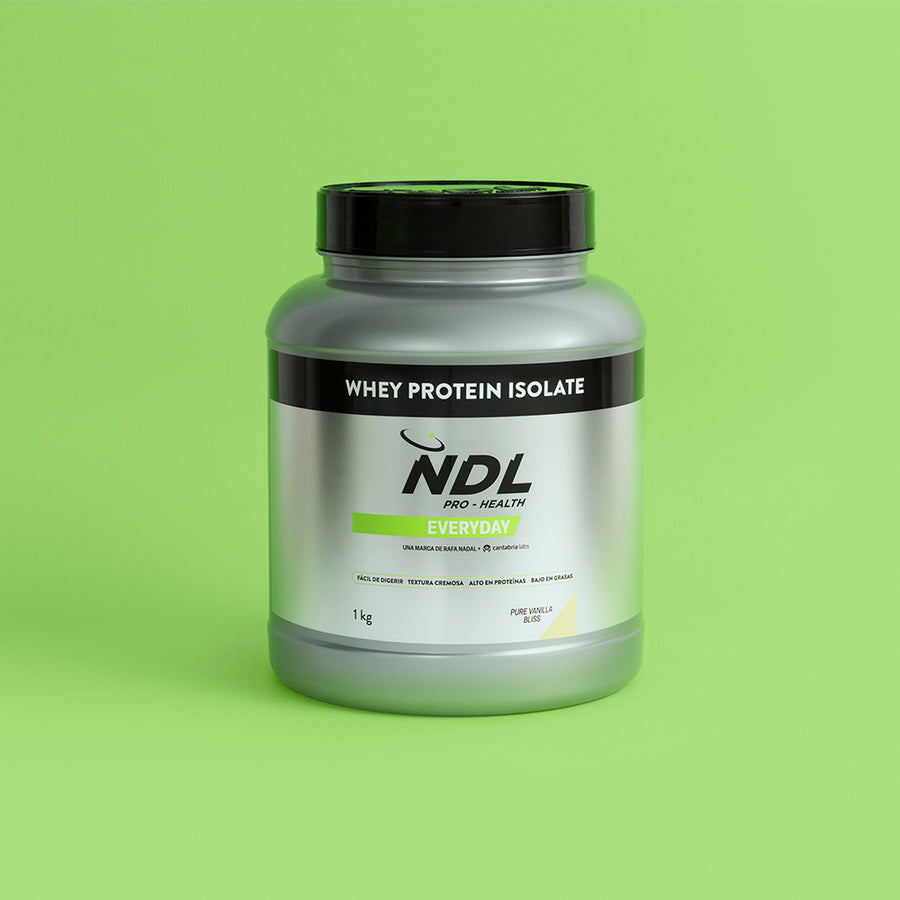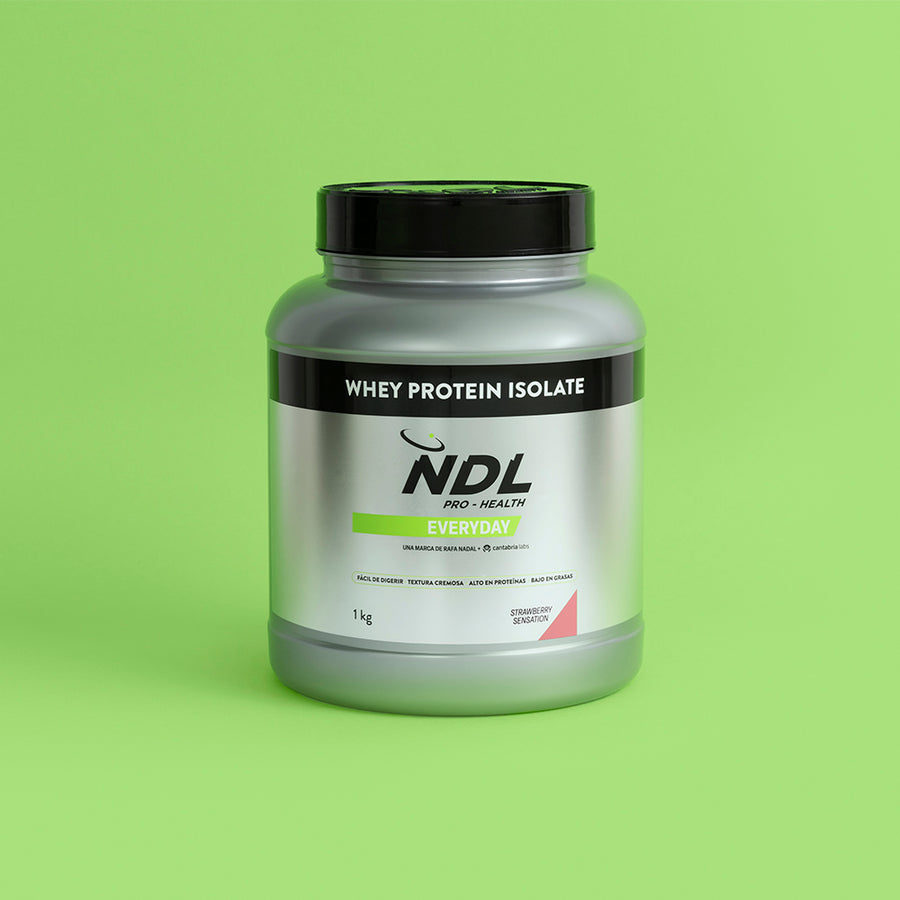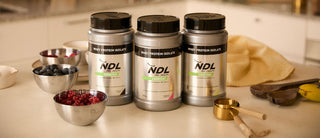Featured Products

Whey Protein Isolate
See product
Whey Protein Isolate Pure Vanilla Blis
See product
Whey Protein Isolate Strawberry Sensation
See productIn this article, we will talk about the difference between whey protein and whey isolate, to help you choose the option that best suits your needs and lifestyle.
Because, when it comes to sports supplementation, proteins are a fundamental pillar for achieving performance and recovery goals. Among the most popular options are Whey Protein and Whey Isolate, two terms that often cause confusion among consumers.
Although both derive from whey and are recognized for their high nutritional quality, there are key differences in their composition, manufacturing process, and specific benefits.
What is Whey Protein?
Whey protein is one of the most popular supplements in the world of nutrition and fitness, thanks to its high quality, versatility, and effectiveness. Also known as whey protein, it is obtained as a natural by-product of the cheese-making process.
This type of protein stands out for its excellent profile of essential amino acids, making it an ideal choice for promoting muscle recovery, lean mass development, and maintaining a healthy lifestyle.
Whey is commonly available in three forms: concentrate, isolate, and hydrolysate.
- Whey Concentrate: Whey concentrate is an affordable and balanced option with 70-80% protein, ideal for supporting muscle recovery and complementing a healthy diet.
- Whey Isolate: Whey Isolate is a high-purity protein (90-95%), low in fats, carbohydrates, and lactose, ideal for strict diets and rapid muscle recovery.
- Whey Hydrolysate: Whey Hydrolysate is a pre-digested protein that is quickly absorbed, ideal for optimizing muscle recovery and minimizing digestive discomfort.
In summary, whey protein is not only an ally for athletes but also a valuable tool for anyone looking to optimize their health and physical performance.

Main Differences Between Whey and Whey Isolate
Whey protein, known as Whey, is a favorite among athletes and health enthusiasts. Within this category, we find two main varieties: Whey and Whey Isolate.
Although both share a common source and offer similar benefits, they have significant differences that influence the choice depending on each person's goals and needs.
- Manufacturing Process: The main difference lies in the level of processing. While whey protein (or concentrate) undergoes basic filtration, Whey Isolate goes through an additional process that removes most of the carbohydrates, fats, and lactose, resulting in a purer protein.
- Protein Content: Whey Isolate usually contains between 90% and 95% protein per serving, compared to the 70-80% provided by Whey concentrate. This makes it an ideal option for those looking to maximize their protein intake with fewer calories.
- Lactose and Digestibility: Being more filtered, Whey Isolate has minimal lactose content, making it more suitable for people intolerant or sensitive to this sugar. Additionally, its purer profile promotes faster digestion.
- Caloric and Macronutrient Profile: Whey concentrate contains small amounts of carbohydrates and fats, which can be beneficial for those seeking a more complete supplement. On the other hand, Isolate focuses exclusively on providing protein, making it a cleaner choice for strict or low-calorie diets.
Therefore, the difference between Whey and Whey Isolate lies in their manufacturing process and the different needs of consumers.
Whey Isolate VS Whey Protein: Which One to Choose?
The choice between Whey and Whey Isolate depends on several key factors, such as your goals, nutritional needs, and lifestyle. Both are high-quality proteins derived from whey, but they have differences in composition and benefits that may influence your decision:
- If you're looking for a complete and affordable supplement: Whey concentrate is an excellent option if you're starting with supplementation or looking for a more affordable product. It contains 70-80% protein, with small amounts of fats and carbohydrates that make it more nutritious and versatile for daily consumption.
- If you want a purer and lighter protein: Whey Isolate is ideal for those who need to maximize protein intake with fewer calories, fats, and carbohydrates. Its advanced filtration process removes most of the lactose, making it the best choice for people with sensitive digestion.
- For specific diets or weight loss: If you're following a low-calorie, low-carb diet or focused on muscle definition, Whey Isolate will be your ally due to its high purity and rapid absorption.
- For general health and performance: If your goal is simply to supplement your diet, improve muscle recovery, and maintain an active lifestyle, Whey concentrate may be sufficient to meet your needs.
So, which protein is better: Whey or Isolate?
The choice between Whey and Whey Isolate depends on your priorities. If you need an affordable and balanced supplement, choose Whey concentrate. If you prefer a purer protein, low in lactose, and with a cleaner caloric profile, opt for Whey Isolate. The most important thing is that both options will help you achieve your health and performance goals.
In conclusion, choosing between Whey and Whey Isolate may seem challenging, but the key lies in identifying your specific needs and personal goals. Both options offer high-quality protein, rich in essential amino acids, that supports muscle recovery, lean mass development, and overall well-being.
No matter which one you choose, both proteins are powerful allies for improving your physical performance, supporting your workouts, and contributing to a healthier diet. The final decision will depend on your goals, budget, and dietary needs, but with either option, you'll be on the right path to achieving your health and fitness objectives.

From the NDL Pro-Health team we will provide you with tips to maintain a healthy lifestyle. Sharing knowledge and product recommendations to offer optimal solutions for your daily routine, for your workouts and subsequent recovery, all with the goal of helping you achieve physical and mental wellness.

















